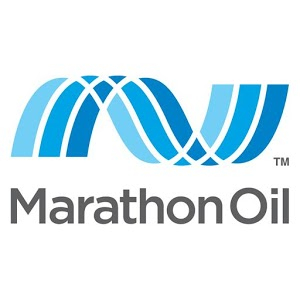Job Description
Responsibilities
Build financial acumen in the asset and integration with Accounting/Controllers
Primary contact with F&A organization and to bring operational insights to F&A teams (asset accounting, corporate accounting, revenue accounting, JV, A/P, SEC Reporting)
Understanding of forecast and key business drivers to bridge the gap between actuals and forecast for production, expense, and capital analysis
Strong understanding of operational forecasting
Completes or coordinates detailed direct, indirect, and capital spend analysis and primary contact for operations
Monthly asset level financial performance reporting
Review financials throughout the close process to identify needed corrections. Coordinate with the asset and accounting to resolve.
Oversight of time writing process and status
Assist accounting and the asset team with establishing streamlined processes for accruals
Communicate & train regarding advanced accounting policies, guidelines, and processes to both the asset and planning to ensure understanding and compliance
Provide Planning feedback on accounting policies and financial modeling
Find solutions for accurate and efficient accounting that are also achievable to model for Planning
Liaise with Internal/External auditors to ensure they have necessary information for audits
Monitor and coordinate resolution for process issues impacting monthly asset reporting accuracy
Coordinate annual ARO reporting
Behaviors/Competences
Collaborative, influential, results-oriented, resilient, skilled interpersonal communicator, self-starter
Understanding of operations accounting and financial statements and their relationship; financial statement analytical skills
Familiarity with accounting close process, SAP and ERP major processes (WBS settlement, work order process, cutback, etc.).
Experience with accounting policies, processes, systems, and reporting
Auditing experience a plus
Ability to communicate difficult messages effectively and tactfully
Marathon Oil
Houston, TX
Marathon Oil traces our history back to 1887. From the beginning, we focused on oil production, starting as The Ohio Oil Company, based in northwestern Ohio, which was the leading center for crude oil production in the U.S. at that time. Because of our early success, John D. Rockefeller’s Standard Oil Trust purchased The Ohio in 1889, and we remained part of Standard Oil until it was broken up in 1911. We entered the refining business in 1924, and operated as an integrated oil company for nearly 90 years of our history.
In 1930, we purchased the Transcontinental Oil Company, acquiring the Marathon product name, the Pheidippides Greek runner trademark, and the "Best in the long run" slogan. That same year we began trading on the New York Stock Exchange. More than three decades later, in 1962, we adopted Marathon Oil Company as our corporate name. From 1982 until 2002, we were part of US Steel. In 1990, we moved our headquarters from Ohio to Houston, where we have remained. When we pulled apart from US Steel, we once again became a standalone company in 2002. In 2011, we spun off the refining business and became an independent E&P company.
Our strategy is focused on the lower cost, higher margin U.S. resource plays that are liquids rich. Our playbook is simple: a strengthened balance sheet, relentless focus on costs, simplifying and concentrating our portfolio, and profitable growth within cash flows.
Marathon Oil became an independent E&P company on July 1, 2011. Based in Houston, we're focused on the most significant oil-rich resource plays in the U.S. -- the Eagle Ford in Texas, Permian in New Mexico, STACK and SCOOP in Oklahoma, and the Bakken in North Dakota. We also have international operations in Equatorial Guinea. While we feel like a start-up in many ways, our roots go back 130 years to our company's formation in 1887. Our stock trades on the New York Stock Exchange under the ticker symbol: MRO.
-
IndustryOil and Gas
-
No. of Employees2,300+
-
Website
-
Jobs Posted28


